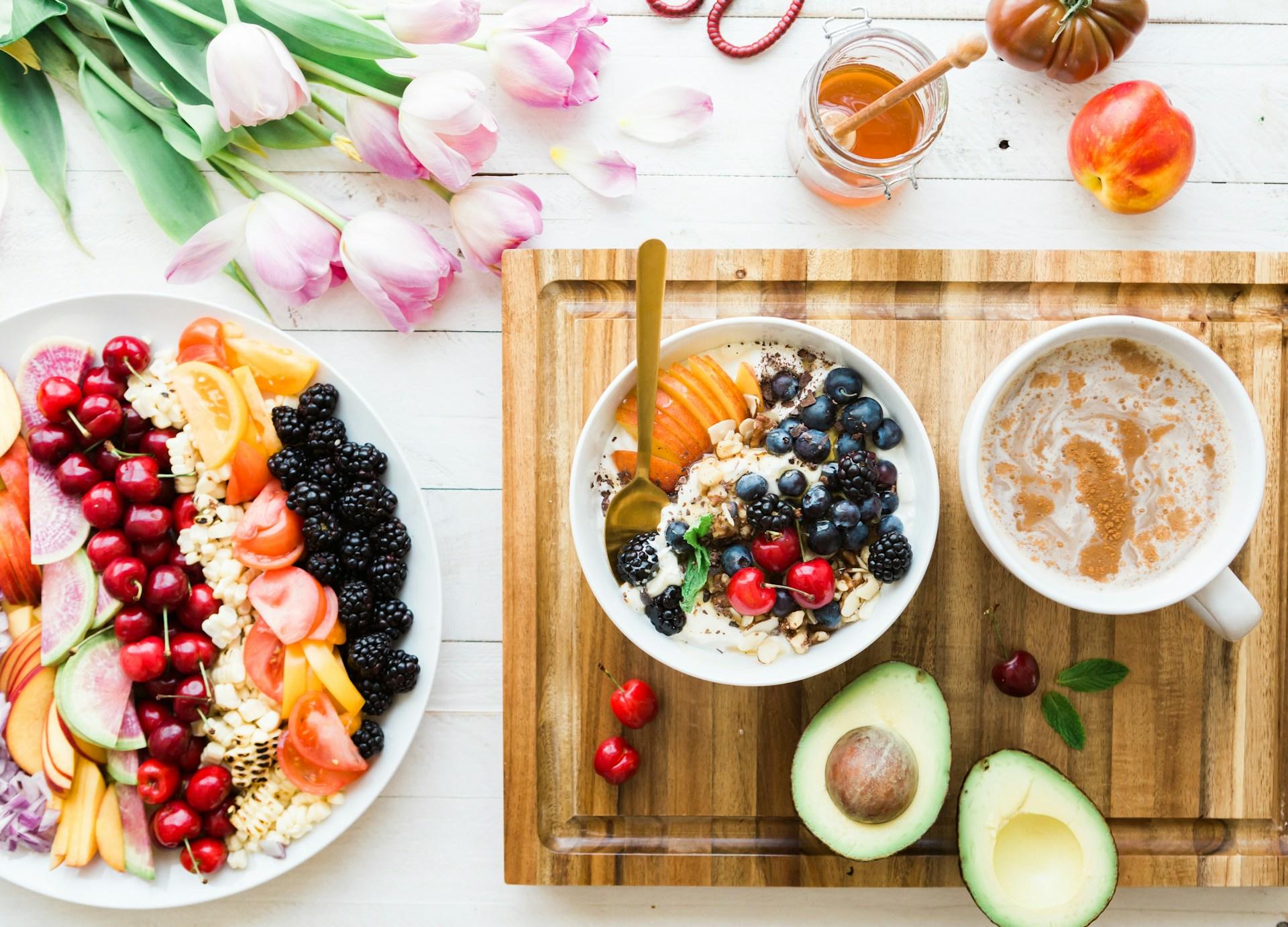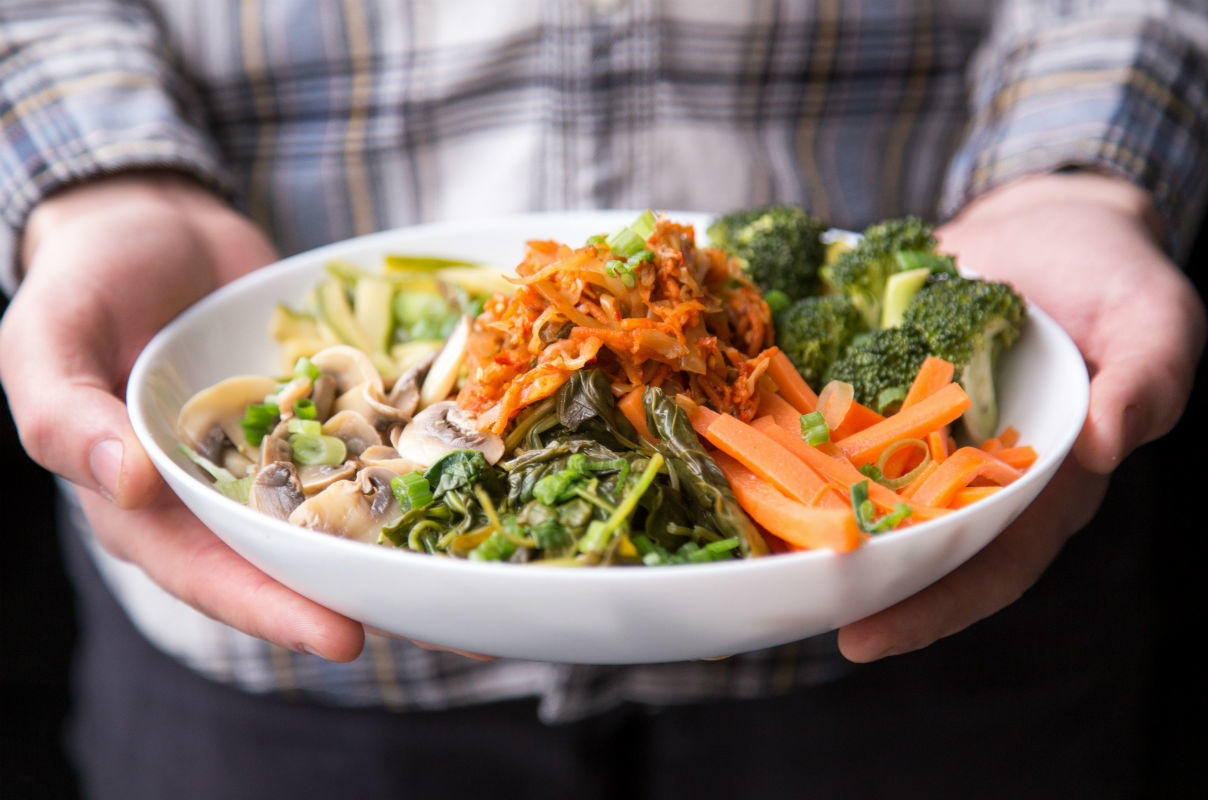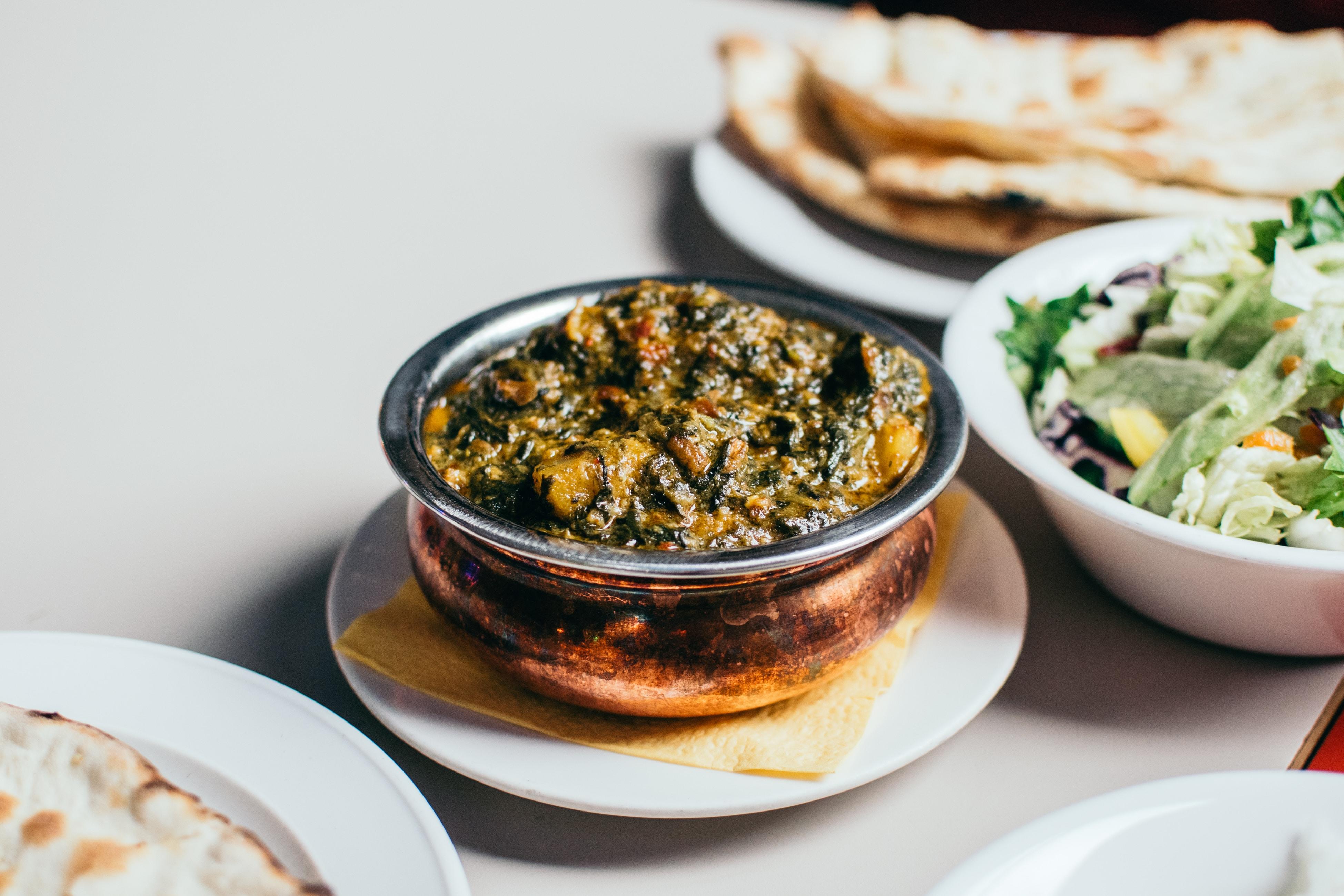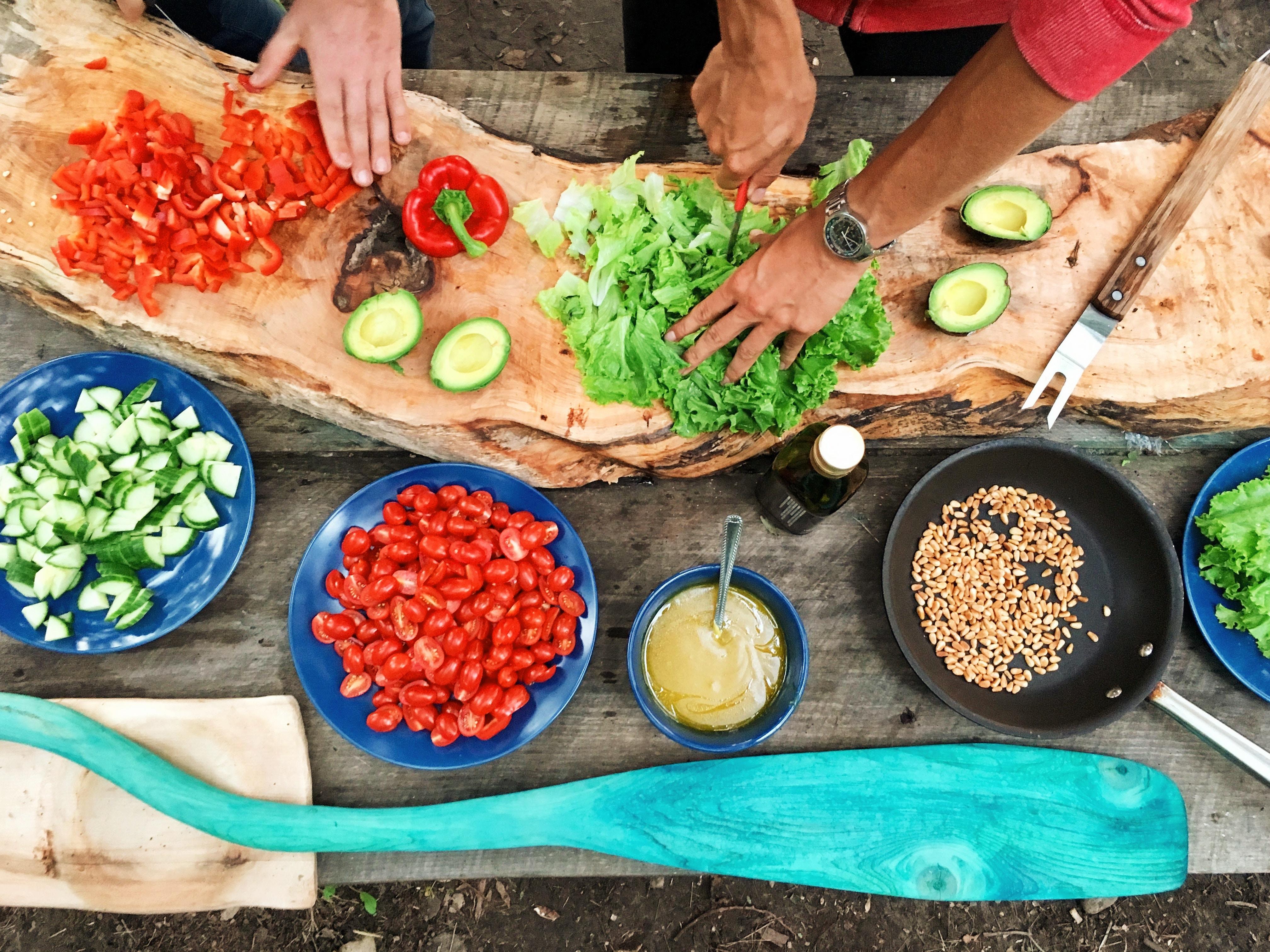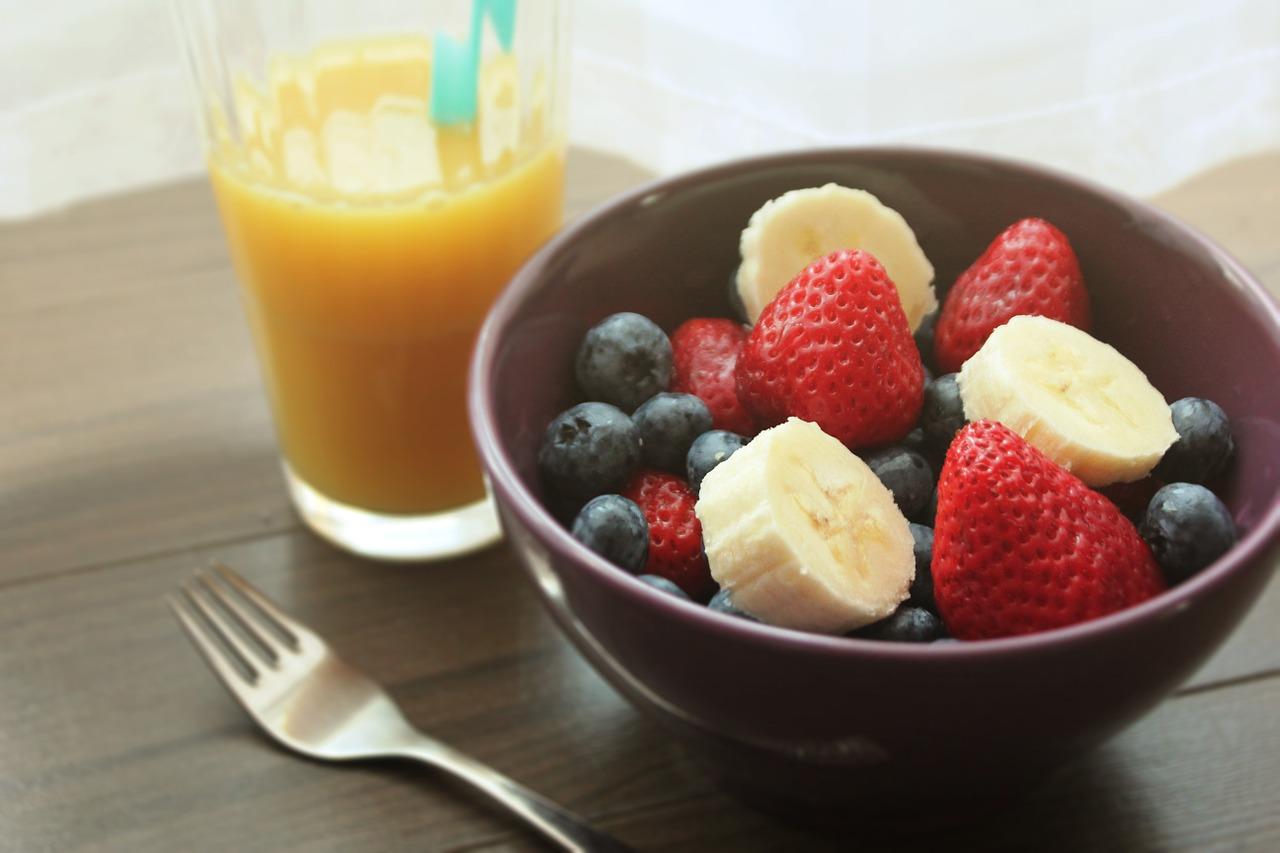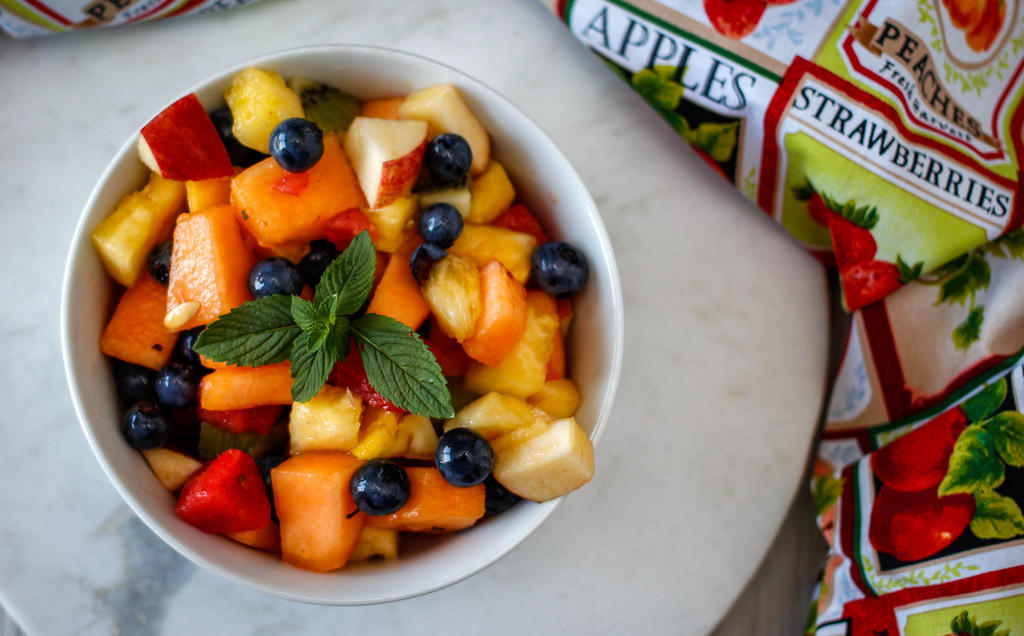There truly is nothing more fundamental to one’s health as a person than the food that you put into your body. Nutrition is the absolute core building block upon which all other aspects of health build from.
Whether you are looking in terms of a weight loss diet, the best protein to build muscle, or the healthiest foods to eat every day, nutrition governs every single aspect of how you stay healthy.
Having a healthy balanced diet isn’t easy, especially in modern fast food society, but understanding is half the battle. That is what we are here for today, to show you through the oft-forgotten basics of nutrition to help you understand the core principles behind building up great personal nutrition.

What Is a Balanced Nutritional Meal?
The place to start is to look at what might constitute a balanced meal. What does a healthy meal contain? The actual answer is that this depends on what your relevant fitness and health goals are, and what your body composition is already, but the simple answer is as follows:
- Protein 25%: About a quarter of your meal should be protein, varying depending on your fitness goals and what you are aiming for. Fish, chicken, and beans are some of the examples of healthy proteins, although there are less healthy options such as red meats and cheese as well.
- Carbohydrates 25%: About a quarter of your meal should be carbs, with the healthiest among them being whole grain carbohydrates. Whole wheat bread, whole grain pasta, and brown rice are some great examples. More processed carbs such as white rice and white bread are less healthy, but fill a similar role.
- Fruits / Vegetables 50%: You want about half of your meal to be fruit and veg! This shouldn’t come as a surprise, as it is common knowledge that these are the healthiest food groups in terms of nutrients. The greater the variety in these, the better.
Of course, this is just an example of a balanced diet with percentages, the actual foods you choose will have an effect too. For instance, brown rice is a considerably more healthy choice of carbohydrates than French fries! You can also make changes to these ratios depending on your fitness goals.
A bulking bodybuilder is going to want something very different from their nutrition compared to someone trying to lose weight!
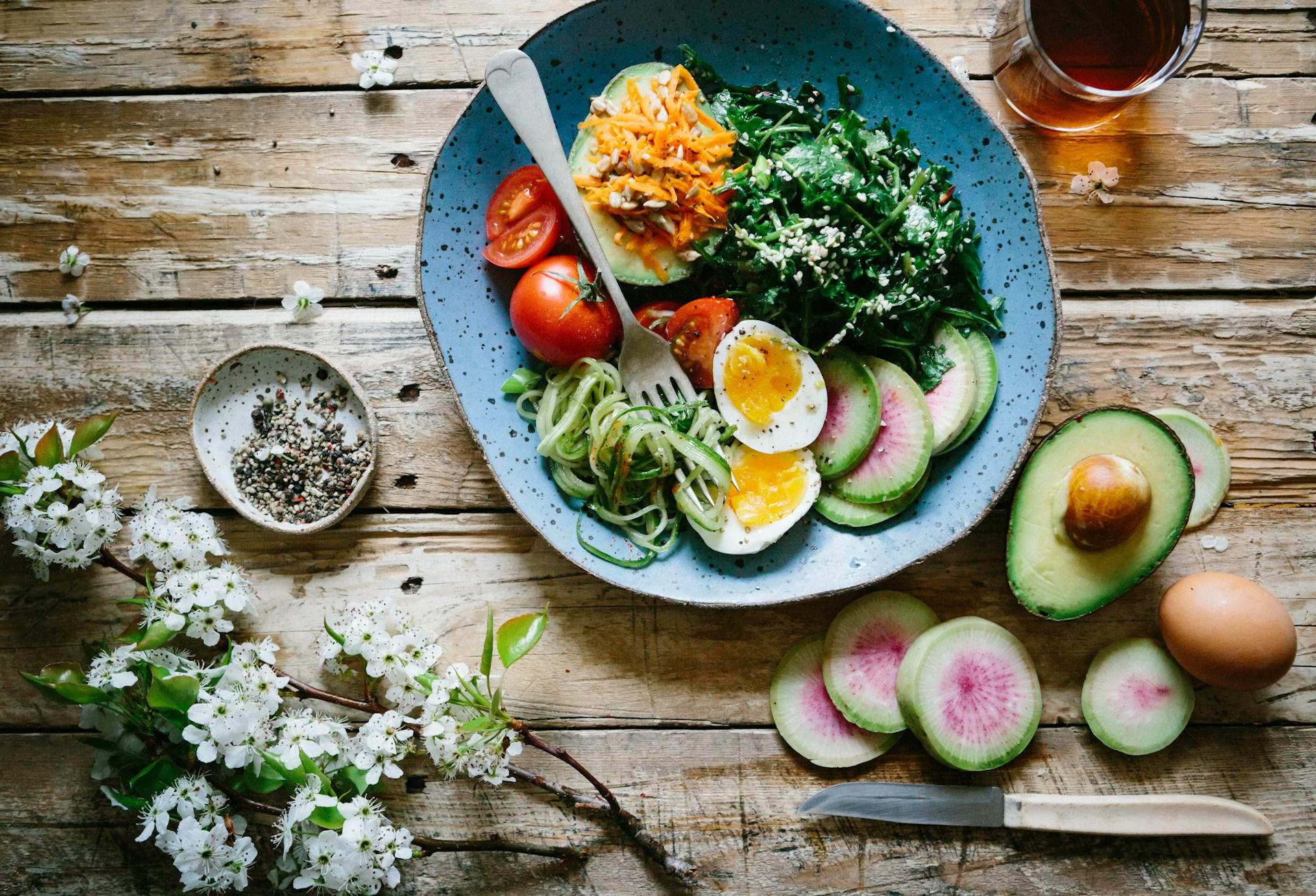
What Is a Balanced Diet for Weight Loss?
There are two crucial sides to healthy nutrition, being composition and calories. Composition covers the balance side of things, that is to say the amount of each food group you have in your meal. On the other hand, calories covers the overall amount of food you eat!
The latter of these two is the central point behind effective weight loss, as well. Depending on how you want to influence your weight, you either want to be in a calorie surplus or a calorie deficit.
What constitutes each of these will vary from person to person, and is calculated by finding what your maintenance calories are. For most adults, this amount will fall around 2,000 calories per day, varying based on height, weight, activity level, and so on.
Someone who wakes up and runs 3 miles every morning might have a maintenance calorie intake of almost 3,000 calories per day, whereas someone who works from a home office and doesn’t regularly exercise might need as low as 1,400 calories per day.
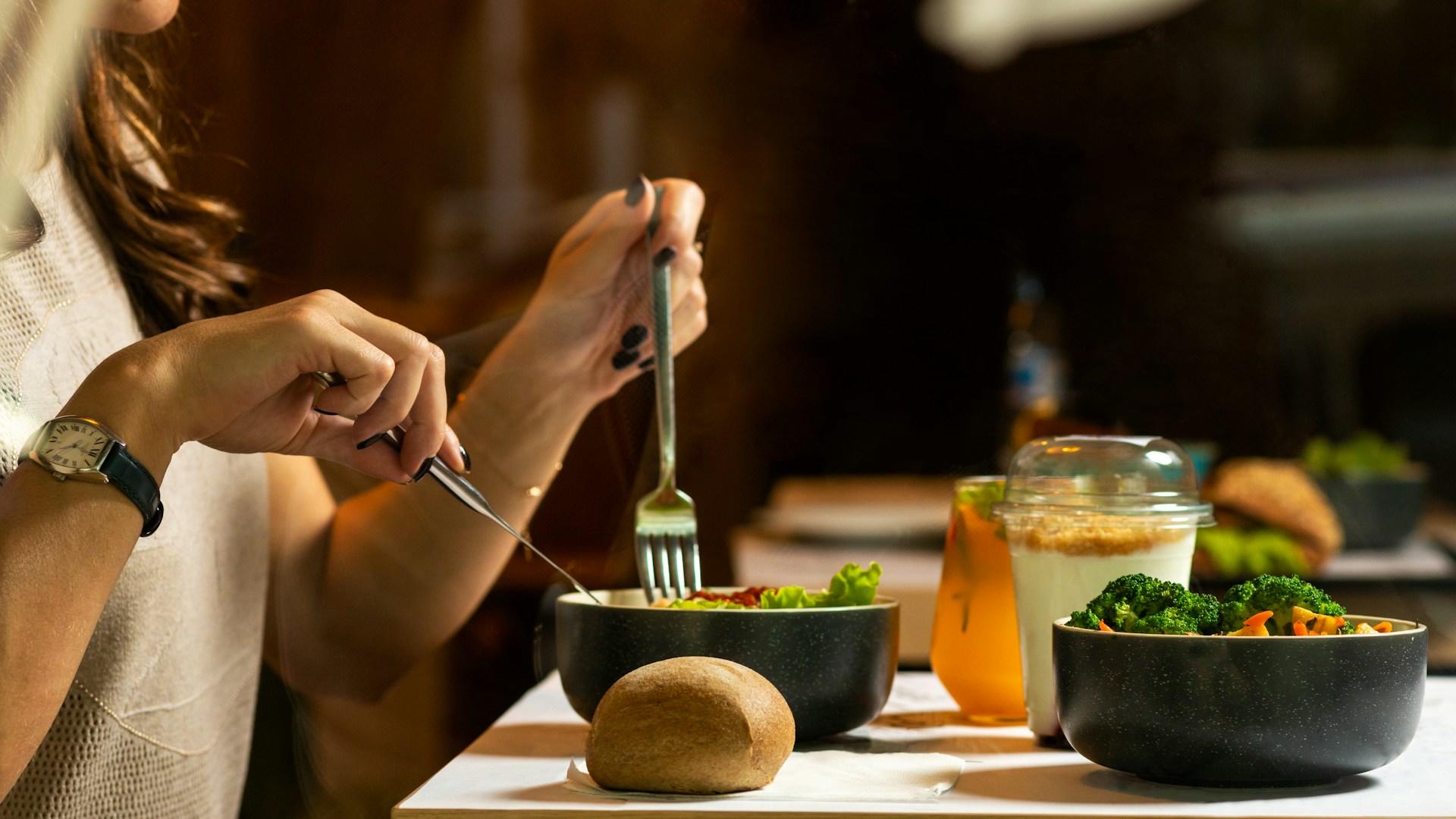
Therefore, whether you are above or below your maintenance calories will determine whether you will lose or gain weight. For instance, if you have a maintenance calorie intake of 2,000 calories per day, and you change your diet to eat 1,600 calories per day, you will gradually lose weight.
However, the type of calories do matter. A balanced diet for weight loss still has to be balanced! Check out your BMI to see if it aligns with your weight loss goals.
What Is a Balanced Diet to Lose Belly Fat?
Losing belly fat is one of the most common fitness goals pretty much wherever you look in the world, and as so much is made of fitness “hacks” to make it easier. However, at the end of the day burning belly fat is almost entirely down to nutrition and exercise.
Simply, if you want to burn belly fat, then you need to be in a comfortable calorie deficit, minimizing the amount of carbs you are eating, and exercising regularly.
As an example, while at maintenance you might eat 2,000 calories per day with the 25/25/50 split we discussed earlier, we can change this to accommodate burning belly fat.
If you wanted to burn belly fat you might lower this down to 1,600 calories to be in a calorie deficit, and change the ratio to be closer to 60% vegetables, 30% protein, and 10% carbs.
In general, a good rule of thumb is that vegetables are always good, protein is good for building muscle mass, and carbs are good for energy and gaining weight.
What Is a Balanced Diet to Gain Muscle Mass?
Based on what we discussed above, we can again make changes to the example to accommodate a diet for those wanting to build muscle. In this example, your balanced daily nutrition will place a much greater emphasis on protein.
Therefore, we might increase from our 2,000 calorie 25/25/50 baseline to something more like 45% vegetables, 35% protein, and 20% carbohydrate, with total calories of 2,500 per day.
The focus here is on getting as much protein as possible, while still balancing it out with vegetables for general health and carbs for energy. Protein is the core food group that contributes to muscle growth, and therefore the focus.
Can You Have a Balanced Diet Without Working Out?
Whether or not a workout is going to be important to your fitness goals depends entirely on your fitness goals. While exercise is healthy, and everyone should always strive to do some exercise every day, there are sometimes fitness goals where exercise doesn’t play as integral of a role in achieving them.
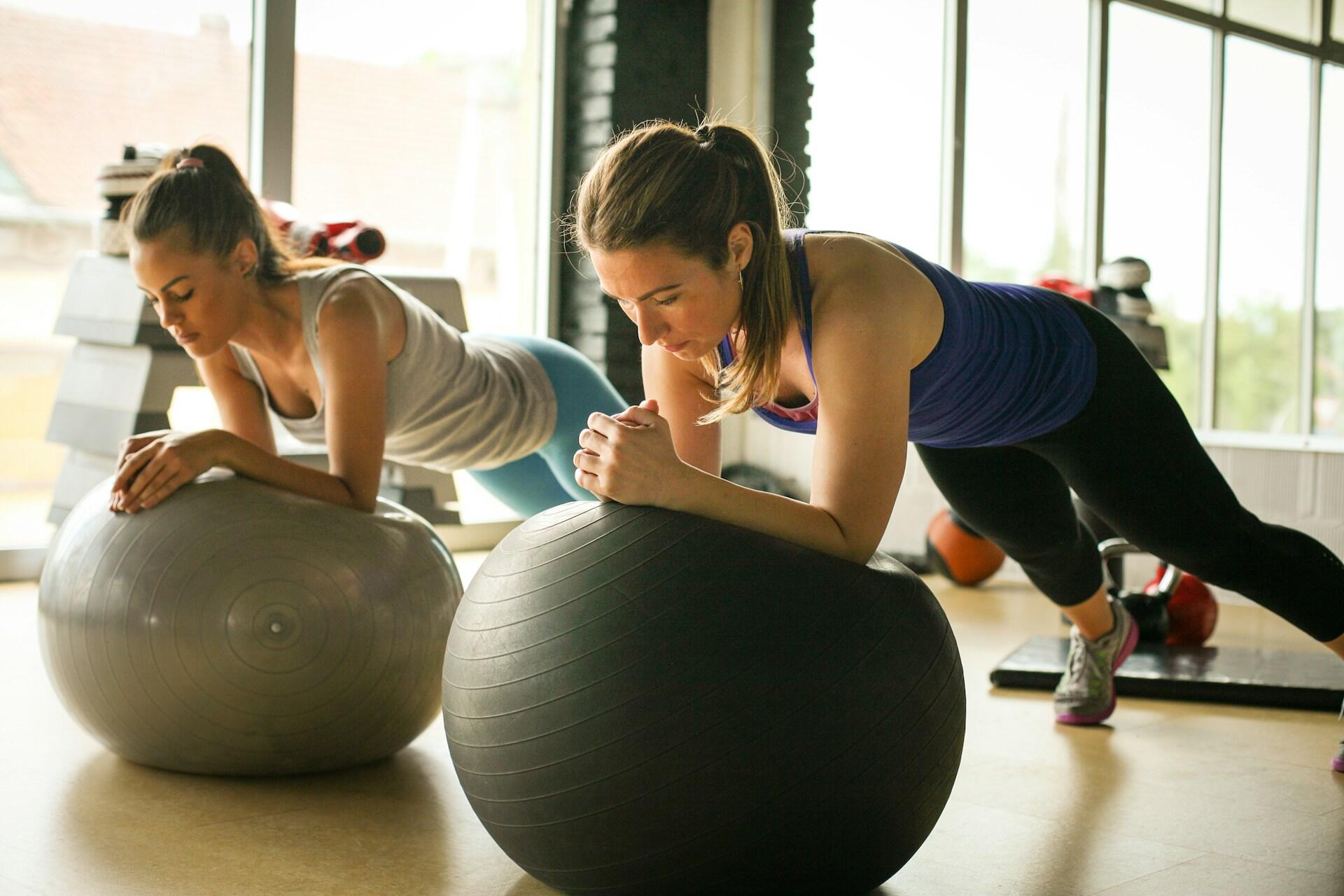
This mainly comes down to whether you want to maintain a constant weight or put on weight that isn’t muscle. If you want to gain muscle mass or lose fat, you will have to incorporate an exercise routine as well.
Can You have a Balanced Diet Without Vegetables?
In a word, no. Considering 50% of what makes up a balanced diet is vegetables and fruit, being healthy without vegetables is borderline impossible. While it would technically be possible to survive by eating only fruit, it would be severely ill-advised and very impractical.
You’re definitely better off just eating your veggies!
Can You Have a Balanced Diet Without Meat?
On the contrary, having a balanced diet without meat is very much so possible. However, what is important to remember is that by removing meat from your diet, you need to replace it with appropriate protein substitutes.
Protein is just as important a part of your diet as vegetables, even if the quantity is smaller. To this end, you need to ensure you are eating plenty of nuts, beans, and other non-meat protein alternatives to offset the lack of meat in your diet.
To complete the protein part of your diet, you will need to replace meat with plant based proteins. This can include beans, tofu, tempeh, cheese, nuts, etc.
Can You Have a Balanced Diet Without Carbs?
This is a more difficult one to answer. The short answer is yes, it is technically possible. However, it is advised against by experts.
While reducing carbs is the best way to induce a healthy calorie deficit for weight loss, you most likely still want to be eating enough carbs to have the energy to function. Carbs are the body’s primary source of energy, which is why a balanced diet is important for everyone no matter their fitness goals.
You can lower the carbs, but removing them completely can do more harm than good!
Find Your Balanced Diet
To conclude, forming the right diet for you and your health goals is vitally important, no matter how challenging a prospect that may seem. However, it doesn’t have to be a challenge you face alone.
Often having a nutrition expert who can help you make decisions you might otherwise have to leave up to guesswork can easily make sure you will be able to hit all your fitness goals.
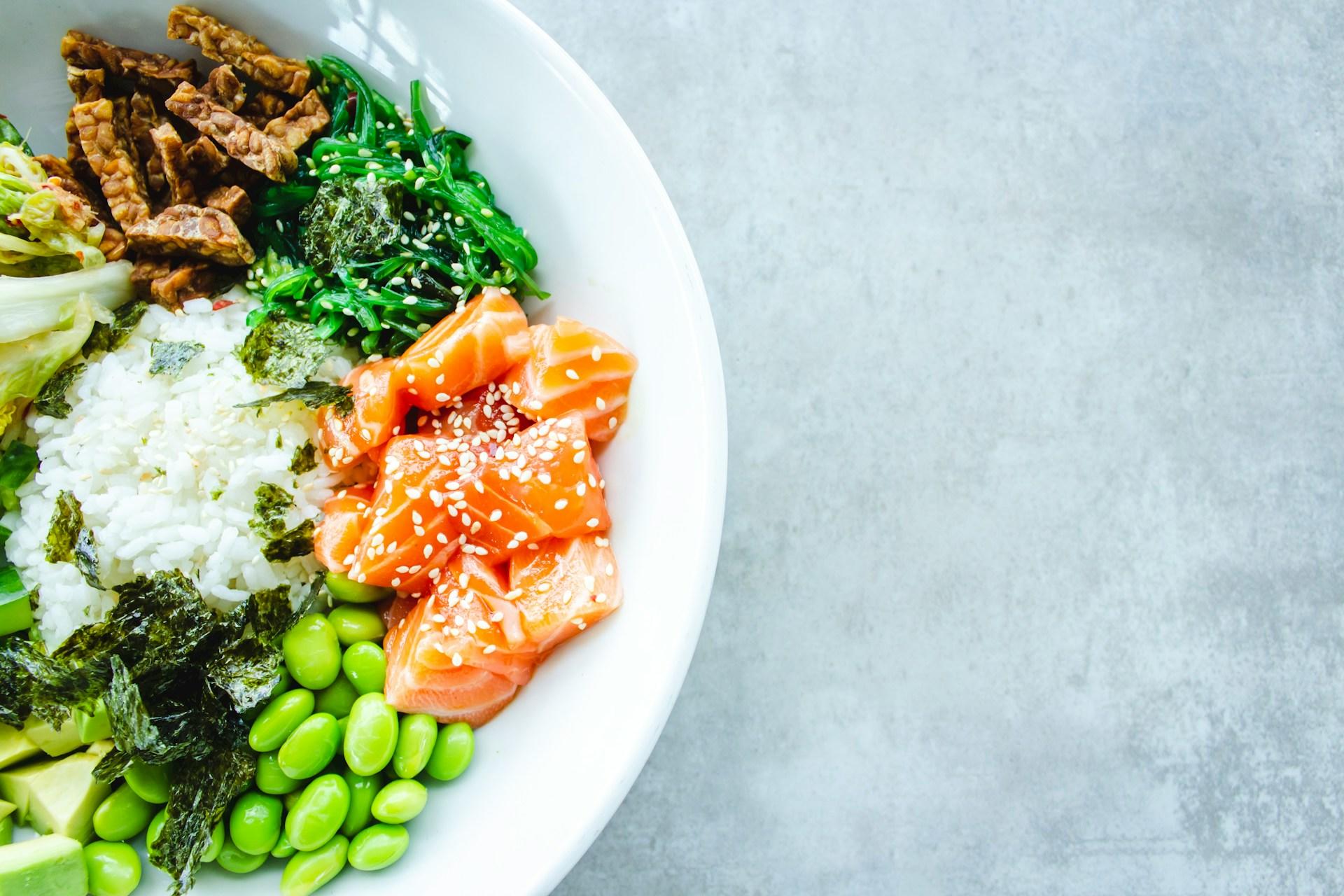
This is where a nutrition tutor or specialist can come in, like those found on Superprof. You can easily ask questions and have them help you build the right meal plan for you.
Nutrition isn’t the easiest subject to navigate on your own, so having an expert who can help you work through it can be a game changer, especially if you want to see progress on your goals quickly. A healthy lifestyle, always, without fail, starts with good nutrition!
Summarize with AI:

